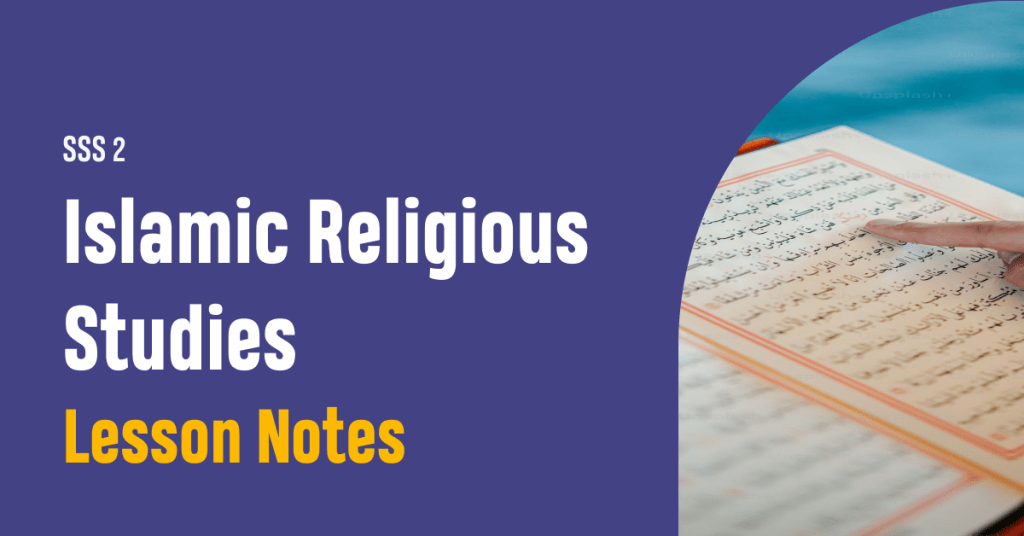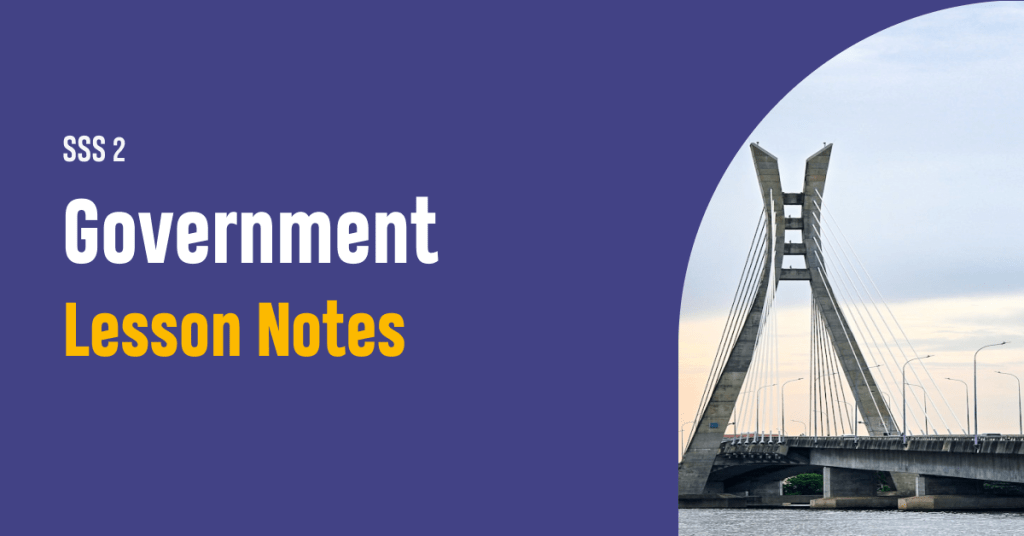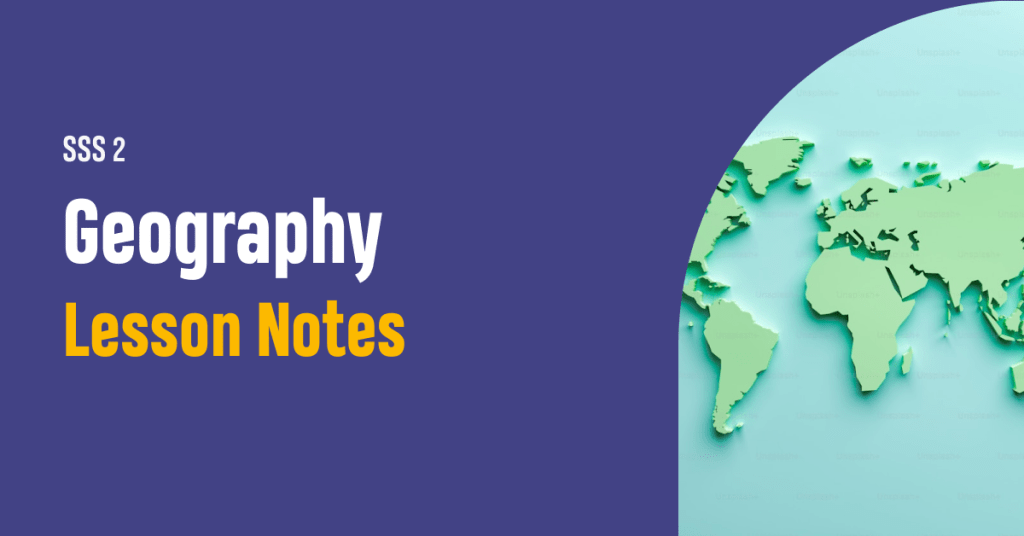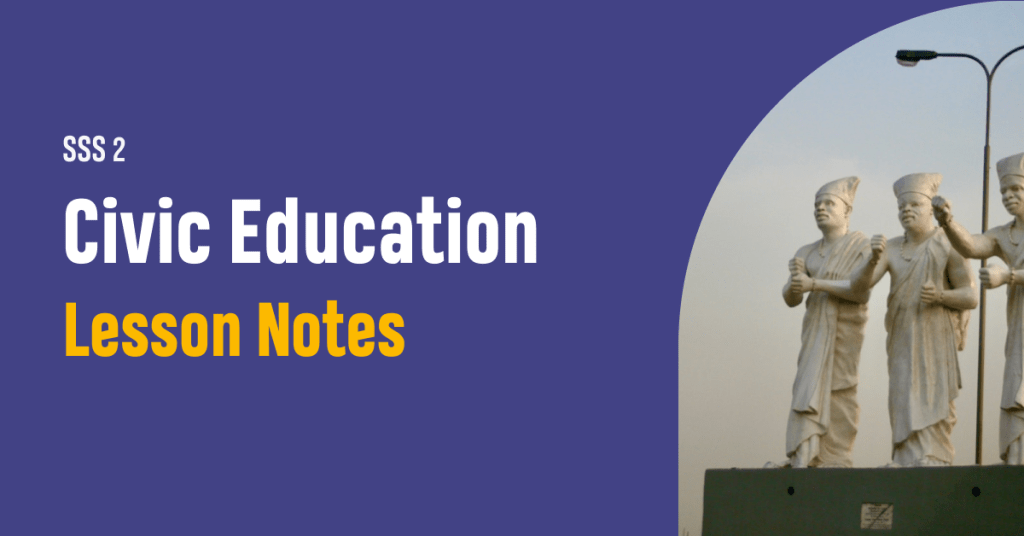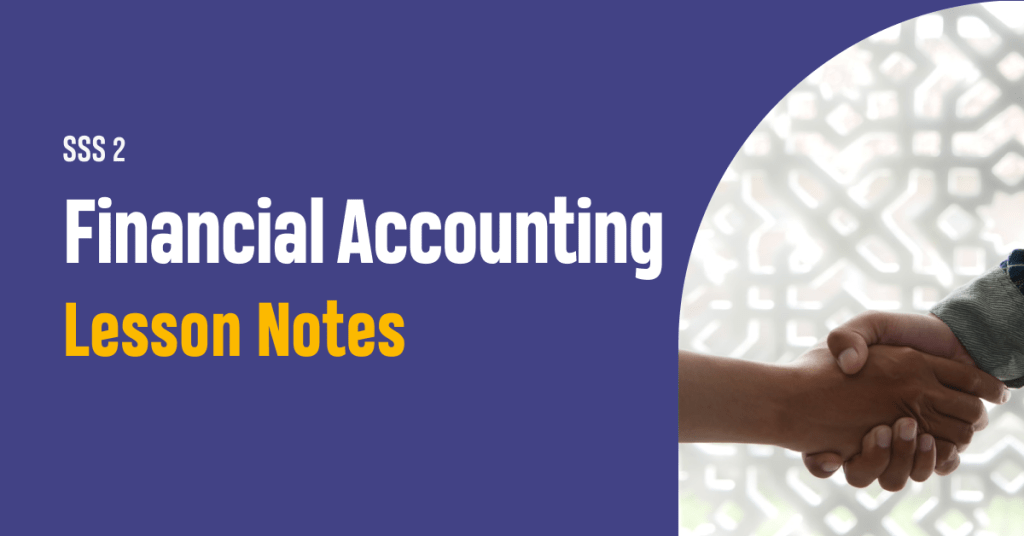SS2 History Scheme of Work
Download the Senior Secondary School 2 (SS2) Unified Scheme of Work for History to serve as a guide for educators

Home » SSS2 Scheme of Work » SSS2 History Scheme of Work
Home » SSS2 Scheme of Work » SSS2 History Scheme of WorkAbout SS2 History Scheme of Work
History as a subject in Senior Secondary Schools in Nigeria is the study of past events, societies, cultures, and civilizations. Studying History gives students a thorough understanding of their heritage, the development of human societies, and the connections between different regions of the world.
History tells the story of humanity, encompassing rich narratives of successes and struggles, revolutions and reforms, cultures and civilizations. By studying this subject in Senior Secondary Schools, students will explore the diverse heritage of Nigeria, Africa, and the broader world, gaining insights into how historical events have shaped contemporary society.
In addition to Nigerian history, the subject covers the broader context of African history, covering great African civilizations, trade networks, cultural exchanges, and the impacts of colonialism and the transatlantic slave trade on the continent.
Studying history in Senior Secondary Schools using the Lagos state unified scheme of work helps to effectively teach students to preserve the cultural and historical heritage of the nation, ensuring that future generations understand and appreciate their roots.
Achievement Standards
At the end of SSS2, students can;
- Discuss the amalgamation of Nigeria and the indirect rule system;
- Explain the British colonial economy and social development in Nigeria;
- Explain nationalism and constitutional development;
- Identify the effect of military intervention in Nigerian politics;
- Discuss the activities and impact of missionary activities.
Assessment Guide
In senior secondary school 2, students are assessed in History based on the school’s prerogative. However, typically, they are evaluated through tests or quizzes (Continuous Assessment Tests), and end-of-term exams.
Grading follows a scale from A to F, with A representing excellent performance, typically scoring around 70% or 80%, and F indicating failure, usually below 50% or 45%.
Download SSS2 History Scheme of Work

Know what’s expected of you as an educator
Download the Lagos State Unified Scheme of Work for Senior Secondary School Two (SSS2) History.
SS2 First Term Scheme of Work for History
| LAGOS STATE MINISTRY OF EDUCATION UNIFIED SCHEMES OF WORK FOR SENIOR SECONDARY SCHOOLS | ||
| History Scheme of Work for Senior Secondary Schools 2(SSS2) | ||
| CLASS | S.S.S.2 | |
| SUBJECT | History | |
| TERM | First Term | |
| WEEK | TOPICS | Learning Objectives |
| 1 | WELCOME TEST/REVISION OF SSS 1 WORK | General revision of all SS1 History Scheme of work |
| 2 | AMALGAMATION OF NIGERIA AND IMPACT ETC | By the end of the lesson students should be able to 1. describe the concept of amalgamation, features and discuss Nigeria before amalgamation 2. compare the activities of Lord Fedrick Lugard, Miss Floral Shaw and Lady Lugard on Nigeria today 3. identify the stages(phases) of Nigeria’s amalgamation and relate the administrative structure on Nigerian today |
| 3 | BRITISH COLONIAL POLITICAL ADMINISTRATION IN NIGERIA: INDIRECT RULE SYSTEM | By the end of the lesson students should be able to 1. explain the concept indirect rule system, structure features and operation in Nigeria 2. discuss the reason and effects of the introduction of indirect rule system in Nigeria 3. identify the success and examine the shortcomings of indirect rule system in Nigeria. 4. highlight the reactions of Nigerians to indirect rule system Aba 1929 Women Riot, Okeiho-igboho uprisings etc |
| 4 | BRITISH COLONIAL ECONOMY SOCIAL DEVELOPMENT AND INTER GROUP RELATIONS IN NIGERIA | By the end of the lesson students should be able to 1. describe British Social Development and Inter Group relations and characteristics of British Colonial Service 2. explain the reasons and effects for the introduction of British Colonial Economy in Nigeria 3. discuss the roles and importance of the British Colonial Economic policy in Nigeria 4. examine the reasons, effect and impacts of the introduction of the British Colonial Social Development in Nigeria i.e Western education, Prison Services, Post Telegraph, Western Housing models etc |
| 5 | NATIONALISM AND NATIONAL MOVEMENT IN NIGERIA | By the end of the lesson students should be able to 1. explain the concept of Nationalism and Nationalist Movements 2. highlight the activities Foremost Blacks, and African Nationalist Movement in Nigeria on Nigeria today 3. highlight the various strategies adopted by the Nigerian Nationalist i.e Labour Strike, Cultural Nationalism, Pamphlet, women emancipation, and relate how the World War affects the growth of nationalist activities in Nigeria |
| 6 | CONSTITUTIONAL DEVELOPMENT IN NIGERIA: ROAD TO INDEPENDENCE | By the end of the lesson students should be able to 1. explain the concept constitution, type features etc 2. identify the various pre-independence constitutional development in Nigeria i.e 1914 Nigeria Council, 1922 Clifford’s, 1946 Richard etc. 3. discuss the reasons and impact of constitutional development on Nigeria today 4. state the merit and the weaknesses of each pre-independence constitution in Nigeria |
| 7 | MID TERM BREAK | |
| 8 | FIRST DEMOCRATIC CIVILIAN GOVERNMENT IN NIGERIA 1960-1966 | By the end of the lesson students should be able to 1. describe the concept democracy, civilian government, mention the major political parties in the first Nigerian Democratic Government and their leaders 2. identify the major political actors in Nigeria first civilian government 3.outline the reasons for the introduction of the first democratic civilian government in Nigeria 1960, features of parliamentary system of government in Nigeria 4. examine the Sir Abubakar Tafawa Balewa movement Nigeria, relatc in Nigeria -January 15 1966 and the effects on Nigeria Today |
| 9 | MILITARY INTERVENTION IN NIGERIAN POLITICS First coup d’etat January 15; 1966 | By the end of the lesson students should be able to 1. describe the military mention the branches of the Armed Forces and other para millitary organs in Nigeria 2. examine the reasons and the effect of the First Millitary Coup d’etat in Nigeria and relate the impacts on Nigeria today. 3. identify the major actors in the First Millitary Coup d’etat in Nigeria i.e Major Chukwuma Nzeogwu etc. 4. Name the Nigerian politicians assasinated during the First Millitary Coup d’etat in Nigeria i.e Sir Ladoke Akintola Primier of Western region etc. |
| 10 | FIRST MILLITARY REGINE IN NIGERIA : MAJOR GENERAL J.T.U AGUYI IRONSI 1966. | By the end of the lesson students should be able to 1. identify a millitary regime and the First Millitary Head of State in Nigeria 2. discuss the reasons for the emergence of the first Millitary Government in Nigeria/the achievements of the first Millitary government in Nigeria 3. examine the weaknesses of the First Millitary government in Nigeria and the impacts on Nigeria today. |
| 11 | MILLITARY COUNTER COUP JULY 1966 SECOND MILLITARY REGIME: The Emergence of Yakubu Gowon | By the end of the lesson students should be able to 1. differentiate between a counter coup d’etat and a Palace Coup d’etat 2. identify the major actors in a counter coup d’etat of July 1966 3. explain the reasons for and the effects of the Counter coup d’etat of July 1966 |
| 12 | REVISION | General revision of the S.S.2 First term work |
| 13 | EXAMINATION | |
SS2 Second Term Scheme of Work for History
| CLASS | S.S.S.2 | |
| SUBJECT | History | |
| TERM | Second Term | |
| WEEK | TOPICS | Learning Objectives |
| 1 | WELCOME TEST/ REVISION OF LAST TERM’S WORK AND EXAMINATIONS -NIGERIAN CIVIL WAR 1967-1970 | General revision of SS2 first term’s History work and examination |
| 2 | NIGERIAN CIVIL WAR 1967-1970 | By the end of the lesson. students should be able to: 1. define the Concept war, Civil war, Refugees, Internally Displaced persons and mention war tactics i.e Sudden bombings etc. 2. examine the origiN,causes and effects(negative and positive) of the Ngenan Civil War 1967-1970. 3. identify the major actors in the Nigerian Civil War and examine the role played by General Yakubu Gowon in ensuring a united Nigeria 4. highlight reasons the Nigerian Civil war lasted for so long |
| 3 | THIRD MILITARY REGIME IN NIGERIA 1975-1979 -GENERAL MURTALA MUHAMMED AND GENERAL OLUSEGUN | By the end of he lesson, students should be able to: 1 .discuss the reasons and the effects of third Military Coup d’etat in Nigeria. 2. identify the major actors of the third military government in Nigeria 1975-1979 and explain the achievements of the Muritala/Obasanjo Millitayr administration in Nigeria 3. highlight the shortcomings of the millitary regime in Nigeria and the effects on Nigeria today |
| 4 | SECOND CIVILIAN DEMOCRATIC GOVERNMENT IN NIGERIA 1979-1983 ALHAJI SHAGARI’S REGIME | By the end of the lesson, students should be able to: 1. explain a democratic goverment, mention the various form of democracy and describe the features of presidential system of government 2. identify the registered political parties, their leaders and the reasons for the emergence of presidential democracy in Nigeria 3. describe the major political actors in the Second Civilian Presidential Democratic Government in Nigeria 4. discuss the achievements, and explain the failures, challenges of President Sheu Shagari’s Government 1979-1983 and the impact on Nigeria today. |
| 5 | RETURN OF THE MILLITARY: 4th MILLITAYR REGIME IN NIGERIA -MAJOR GENERAL MUHAMMED BUHARI/ BRIGADIER TUNDE IDIAGBON 1983-1985 | By the end of the lesson, students should be able to: I . describe General Sanni Abacha, reasons for the emergence and Identify the major actors in the 4th Military regime in Nigeria. 2. identify the major actors and the structure of the 4th millitary rule in Nigeria 1983-1985 3. examine the achievements and explain the failures, challenges of the Buhari/Idiagbon millitary regime 1979-1983 and the impact on Nigeria today. |
| 6 | RETURN OF THE MILLITARY: 5th MILLITAYR REGIME IN NIGERIA -GENERAL IBRAHIM BABANGIDA 1985-1993 | By the end of he lesson, students should be able to: 1. describe the personality of General Ibrahim Babangida and examine the reasons for the emergence of General Ibrahim Babangida in 1985. 2. discuss the structure and the Major Actors of the 5th military rule in Nigeria. 3. compare the achievements and explain the failures of Military regime in Nigeria and the impacts on Nigeria today. 4. highlight the reasons and effects of the June 12 1993 phenomena in Nigerian History and examine the formation, structure achievements and challenges of the Interim National Government led by Chief Emest Shonekan in 1993. |
| 7 | MID TERM BREAK | |
| 8 | MILITARY REGIME IN NIGERIA: GENERAL IBRAHIM BABANGIDA 1985-1993 | By the end of the lesson. students should be able to: 1. describe the personality of General Ibrahim Babangida and examine the reasons for the emergence of General Ibrahim Babanglda in 1985. 2. discuss the structure and the Major Actors of Abacha’s admtnstratron in Nigeria effects on Nigeria today 3. identify reascns for the Establishment of the Women and Children Hospital known as the National Hospital Nigeria and examine the effects on Nigerian Health Services today 4. highlight the various economic policies of General Sani Abacha millitary rule in Nigeria and discuss the reason for the stability of the Nigerian currency the Naira between 1993-1999 |
| 9 | 7th MILITARY REGIME IN ABDUL SALA.M ABUBAKAR 1998-1999 | By the end of the lesson. students should be able to: 1. explain the circumstances that led to the emergence of General Abdulsalam Millitary Government 1998-1999. 2. identify the major actors and structure of the 7th millitary rule in Nigeria 3. examine the achievements recorded by General Abdulsalam Abubakar’s millitary government in Nigeria and factors for the millitary disengagement and return to presidential democracy on May 29 1999. 4. describe the challenges faced by the 7th millitary government in Nigeria and the impact on Nigeria today. |
| 10 | TRANSITION AND THE FOURTH NIGERIAN CIVILIAN REPUBLIC: GENERAL OLUSEGUN OBASANJO. 1999-2003-2007 | By the end of the lesson students should be able to: 1. discuss the reasons for the emergence of the fourth Nigenan Civilian Republic and name the registered Political Parties and their leaders 2. mention the major functionanes and the structure of the Civilian govemment, 3. explain the achievements of the Obasanjo’s civilian administration in Noeria. 4. examine the weaknesses of the Nigerian Civilian Republic and the Effects on Nigeria today. |
| 11 | ISLAMIC MOVEMENTS AND THE ESTABLISHMENT OF MUSLIM STATES IN WEST AFRICA: -Similarities of Jihads in West Africa | By the end of the lesson, students should be able to: 1. identify other Jihads in West Africa and their Jihadists. 2. discuss the reasons organization, effects of the Seku Ahmadu Masina Jihad and the Alhaji Umar Loobo Tukulor Jihad in West Africa 3. examine the reasons, operations and effect of Samouri Toure Madinka Nationalist Jihad in West Africa 4. Describe the Similarities of Jihads in West Africa and Identify the impacts of Islamic Movements on West Africa today |
| 12 | REVISION | General revision of first and second term’s SS2 scheme of work |
| 13 | EXAMINATION | |
SS2 Third Term Scheme of Work for History
| CLASS | S.S.S.2 | |
| SUBJECT | History | |
| TERM | Third Term | |
| WEEK | TOPICS | Learning Objectives |
| 1 | WELCOME TEST/ REVISION | General revision of SS2 first and seand term’s work and examinations |
| 2 | MUSLIM STATES IN THE FACE OF COLONIZATION IN WEST AFRICA | By the end of the lesson, students should be able to: 1. mention the various muslim states in the 19th century Wect Africa 2. list the various European Colonist in West Africa 3. explain the reasons and the effects of European colonilization on Muslim states in West Africa 4. describe the resistance and response by the various muslim states in the face of European colonilization on west Africa today |
| 3-4 | CHRISTIAN MISSIONARY ACTIVITIES IN WEST AFRICA | By the end of the lesson, students should be able to: 1. describe the origin and mention the various christian missionaries that worked in West Africa in the 19th century and the areas of abode 2. identify the reasons for the arrival of Christian missionaries, the problem faced and how the challenges were addressed, and discuss the impacts of the Christian missionaries on West Africa i.e education etc 3. explain the reasons and the effects of the foundation of Seirra Leoine and Liberia on West Africa today 4. describe the importance of Creole civilization on indigeneous West Africa people and relate the activities of African Aglican Bishop Ajayi Crowther in West Africa and the impacts today |
| 5-6 | EMPIRE IN WESTERN SUDAN: OLD GHANA, MALI AND SONGHAI EMPIRE IN AFRICA. | By the end of the lesson, students should be able to: 1. mention the Notable Empires in the notable empress Western Sudan Africa and identify the geograpical location, origin, founder, capitals of Old Ghana. Mali and Songhai empire in Western Africa Sudan 2. discuss the reasons for the rise and collapse of Old Ghana, Mali and Songhai Empires in Western Sudan -African 3. examine the importance of Gold-a natural mineral to the growth and decline of great empires in Western African Sudan Empire today. 4. relate the achievementss of Great rulers- Emperors to the growth and development of western Sudan i.e Mansa Moussa Mali Empire, Soni Ali, and askira Muhammad in Songhai Empire etc. and the impacts on West Sudan Africa today. |
| 7 | MID TERM BREAK | |
| 8-9 | GREAT EMPIRES AND KINGDOMS IN WEST AFRICA. -ASHANTE EMPIRE IN GHANA REPUBLIC AND DAHOMEY KINGDOM IN BENIN REPUBLIC | By the end of the lesson, students should be able to: 1. identify the geographical locaüon origin founder’s capitals of Ashante Empire and the Dahomey kingdom West Africa 2. discuss the reasons for the rise in stucture socio- politcal organization and the factors for the decline of the Asante Empire — Ghana and Dahomey Kingdom —Benin in West Africa |
| 10-11 | FACTORS RESPONSELE FOR THE DECLINE OF GREAT EMPIRES IN WESTERN SUDAN WEST AFRICA | By the end of the lesson, students should be able to 1. mention Great Empires and kingdoms in Western Sudan and West Africa and explain the reasons for the decline and the consequences of the collapse of Great empires and Kingdoms in Western Sudan and West Africa. 2. examine the effects and decline in the Trans -Saharan Trade networks and the introduction of coastal trade on the collapse of Great Empires in Western Sudan and West Africa 3. relate the impcats of religion and diverse doctrine on the decline of Great empires in Western Sudan and West Africa 4. describe the role of European colonizers on the decline of Great Empires in Western Sudan and West Africa |
| 12 | REVISION | General revision of first and second term’s SS2 scheme of work |
| 13 | EXAMINATION | |
Recommended History Textbooks for Senior Secondary School 2
The recommended History textbooks for SSS2 include but are not limited to the following:
- History of Nigeria and The Wider World Since 1800 for Senior Secondary Schools by Eruchalu A. N Okafor PIO – A Patrobas Nigeria Ltd
- Africa and the wider world by Oladele Odanye
- A Handbook of History for Senior Secondary Schools, History of Nigeria by Oladele Odanye.
- A Comprehensive History for Senior Secondary Schools in Nigeria Oladele Odanye (Ph.D)
- Ajayi and Crowther (1971): History of West Africa Vol I, London, Longman.
- Ajayi and Crowther (1971): History of West Africa Vol II, London, Longman.
SSS2 Scheme of Work for All Subjects
Trade Subjects
Download SSS2 History Scheme of Work

Know what’s expected of you as an educator
Download the Lagos State Unified Scheme of Work for Senior Secondary School Two (SSS2) History.





















